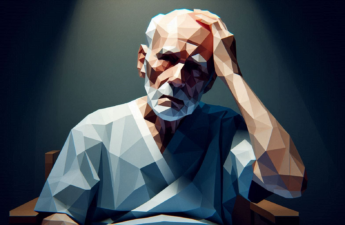Current enrollees who do not update their information or select an alternative will be automatically reenrolled in their current plan or, if that plan is no longer available, into a plan with similar coverage.
Health News Headlines
CDC to screen travelers for Marburg virus – Brain stem damage linked to long COVID – US sets 10-year deadline to replace lead pipes
Washington advocates push for state ban on flavored vapes
Two lawmakers plan to introduce legislation next year to prohibit the nicotine product. By Grace DengWashington Standard A broad coalition of Washington educators, doctors, researchers and social justice advocates has launched a campaign to ban flavored nicotine vapes in the…
Health News Headlines
Marburg virus outbreak – Time to get flu and COVID-19 shots – Fake meds online pose overdose risk, CDC – School vaccination rates fall – Long-term deaths from hurricanes
Fungal infections known as valley fever could spike this fall – 3 epidemiologists explain how to protect yourself
As the climate warms and landscapes become drier, researchers fear that valley fever could spread across other regions of the U.S.
Health risks are rising in mountain areas flooded by Hurricane Helene and cut off from clean water, power and hospitals
Contaminated water is one of the leading health risks, but residents also face harm to mental health, stress that exacerbates chronic diseases and several other threats.
What pathogen might spark the next pandemic? How scientists are preparing for ‘disease X’
There are also the unknown unknowns, or “disease X” – an unknown pathogen with the potential to trigger a severe global epidemic. To prepare for this, we need to adopt new forms of surveillance specifically looking at where new pathogens could emerge.
Workplace wellbeing programs often don’t work – but here’s how to make them better
A UK study which looked at 46,336 employees from 233 organisations found there was no evidence that a range of common workplace wellbeing initiatives – including mindfulness and stress management classes, one-to-one mental health coaching, wellbeing apps or volunteering work – improved employee wellbeing. So despite companies investing over US$60 billion annually worldwide in wellbeing programmes, they appear to make little impact.
The role alcohol plays in new cancer cases – landmark new report
A little bit of alcohol was once thought to be good for you. However, as scientific research advances, we’re gaining a clearer picture of alcohol’s effect on health – especially regarding cancer.
200+ women faced criminal charges over pregnancy in year after Dobbs, report finds
In the year after the U.S. Supreme Court dismantled the federal right to abortion in June 2022, 210 pregnant women in a dozen states were criminally charged for conduct associated with their pregnancy, pregnancy loss or birth. Six states — Alabama, Oklahoma, South Carolina, Ohio, Mississippi and Texas — accounted for most cases.
Can you change your personality? Psychology research says yes, by tweaking what you think and do
People can intentionally shape the traits they need to be successful in the lives they want. That’s contrary to the popular belief that your personality type places you in a box, dictating that you choose partners, activities and careers according to your traits.
Health News Headlines
Hospital sued over abortion denial – Breast cancer on rise among young women – Hidden liver disease – Obesity first health care – Marburg in Rwanda
Health News Headlines
Human-to-human bird flu transmission – Man dies of rabies – DASH diet – Senior moments – 23andME DNA up for sale
Will abortion swing the first post-Roe presidential election?
Throughout this election cycle, polls in the swing states have shown bipartisan support for abortion rights, especially when voters are educated about what abortion bans do. Voters in more than half of the states expected to determine the presidential winner have, to varying degrees, lost access to abortion. And abortion-rights activists across these states told States Newsroom they are determined to protect that access, or to get it back.
Delirium: this common and frightening syndrome looks like dementia, but comes on much faster
Delirium is a common complication of hospitalization can have a direct impact on patients’ illness and mortality rates. It is therefore extremely important to prevent it, or, failing that, to establish an early diagnosis in order to treat it correctly.













